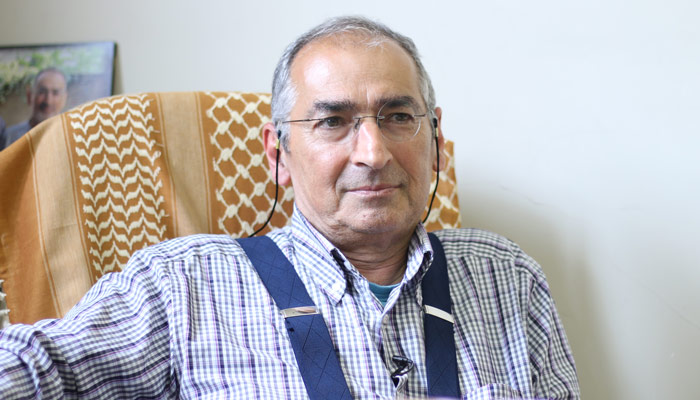March 16, 2018

Sadeq Zibakalam, a Tehran-based Reformist political analyst and academic known for his criticisms of Iranian state policies, has been sentenced to 18 months in prison for telling a foreign news broadcaster the majority of Iranians do not support the Islamic Republic.
In telephone interviews, the Tehran University political science professor told The Guardian of Britain and Deutsche Welle, Germany’s international broadcasting arm, about the sentence and announced his plan to appeal.
In addition to the prison sentence, Zibakalam said he had been barred from writing for newspapers, giving interviews and making comments on social media for two years. He said no one has ever before been given such a sentence.
The sentence was handed down by Judge Abol-Qasem Salavati.
Zibakalam earlier told the Center for Human Rights in Iran (CHRI) he was called before the Culture and Media Court after he gave an interview to Deutsche Welle.
“In an interview about recent disturbances in early January, I said, if a referendum were held today, a considerable number of Iranians would not vote for the Islamic Republic; perhaps only 30 percent would,” Zibakalam told CHRI. He also said the disorders were caused by public discontent with regime policies, but predicted the authorities would blame foreigners—as they did. “The prosecutor has taken my words to be ‘propaganda against the state’ and ‘weakening the state.’
“It has become a trend; they really want to force me to stop giving interviews,” he said. “This is a violation of freedom of speech. It’s the third time I have been taken to court for giving an interview. Just two weeks ago, the Appeals Court issued a final ruling against me [in another case].”
The political analyst told CHRI that ultimately the Appeals Court ordered him to pay 40 million rials ($900) after an earlier conviction for “disturbing public opinion” for saying that the Iranian Judiciary had not been impartial in trying to prosecute President Rohani’s brother, Hossain Fereydoun.
Zibakalam said, “I still haven’t paid the fine because I really think that someone who says the Judiciary is not acting independently should not be charged with ‘disturbing public opinion’.”
“In my statements in my own defense and in a letter to the Judiciary chairman [Sadeq Larijani], I said I agree that my intention was to disturb public opinion but I want to know, how does the Judiciary measure such things?” he said.
“Even if what I did was a crime, what did I do that convinced you I was disturbing public opinion?” said Zibakalam. “How did you know? Did you conduct a poll to measure how the people were disturbed by my interview? There really isn’t any framework or discipline for measuring disturbances of public opinion. Propaganda against the state? What are you talking about? Even more interesting is charging me with ‘weakening the state!’”
Zibakalam also confirmed that his contract was recently canceled by Tehran’s Islamic Azad University (IAU), where he had been working as a professor for a decade. (See last week’s Iran Times.)
“The IAU has unilaterally canceled my contract after 10 years without any prior notice,” he said. “One of my colleagues, who’s a legal expert at Tehran University, told me I should file a complaint with the Labor Ministry because employers cannot break a contract without prior notice and they should pay compensation for all my years of work.”
Zibakalam said: “Expelling professors who teach humanities and rewriting their contracts are attempts by the IAU to make universities more Islamic and inject the state’s ideology into the curriculum. But this method has been tried and has failed in Eastern European countries [under communism] and China. It will also fail in Iran.”
Beyond firings like that of Zibakalam, the Sharq daily has reported that the IAU has demoted about 170 professors in the Science and Research Department to part-time positions.
Supreme Leader Ali Khamenehi has often called on Iranian universities to avoid teaching Western ideas in the humanities and instead focus on Islamic instruction.
In June 2014, Zibakalam was sentenced to 18 months in prison for criticizing Iran’s nuclear program policies and the handling of financial corruption cases by the Judiciary. His sentence was later reduced on appeal to a fine of 50 million rials ($1,100 at the current rate of exchange).
Before the 1979 revolution, Zibakalam served 24 months in prison for membership in the Mojahedin-e Khalq. He was released in September 1976.
